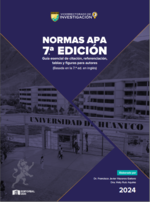Analysis of the principle societas delinquere non potest in the Peruvian penal system
DOI:
https://doi.org/10.37711/RJPDD.2024.1.2.2Keywords:
purposes of the penalty, legal entity, penal process, penal system, penal codeAbstract
Objective. To analyze the principle societas delinquere non potest in the peruvian penal system. Methodology. For the development was employed the interpretative paradigm, through the qualitative methodologic perspective, using a methodological design of content analysis, whether bibliography, regulatory, doctrinal, or jurisprudential, and using the ethnographic method. The methodological design was deployed to the long of three stages: descriptive, expository and theoretical, having been delimited the study in Huanuco city during the year 2021, for which bibliographic and jurisprudential material was available. Furthermore, in-depth interviews were conducted with six experts in the criminal feld: two university professors, two prosecutors, and two criminal judges, with professional experience. Results. It was shown that the figure of acting on behalf of a legal entity is suitable for addressing the problems that arise when a criminal act is attributed to a legal entity. which is produce because the criminal legislator is reluctant to recognize that this can also be an active subject of the crime, through the formula of acting on behalf of another (the legal entity). Conclusions. The principle studied is decontextualized and displaced in the current context, where both international doctrines and several countries in particular have recognized the criminal responsibility of companies and legal entities.
Downloads
References
De la Mata, N., Gómez-Aller, J., Lascuraín J. A., y Nieto A. (2018). Derecho penal económico y de la empresa. Dykinson.
Fernández, M., y Meini Fernández, I. (2009). Imputación y responsabilidad penal - Ensayos de derecho penal. Ara Editores.
García, P. (2023). Responsabilidad penal de personas jurídicas y consecuencias accesorias. Portal de revista Ulima, 2, 1-22.
Gómez, H. (2019). Tratado sobre compliance penal. Tirant Lo Blanch.
Hirsch. H. J. (1993). La cuestión de la responsabilidad penal de las asociaciones de personas. Anuario de Derecho Penal y Ciencias Penales, 46, 1108-1121.
Mila, F. (2020). La responsabilidad penal de las personas jurídicas en el derecho ecuatoriano. Lus et Praxis, 26(1), 149-170. https://dx.doi.org/10.4067/S0718-00122020000100149
Reyna, L. (2008). Panorama actual de la responsabilidad penal de la empresa. Revista Peruana de Derecho de la Empresa, https://es.scribd.com/document/716728238/LECTURA-REYNA-ALFARO-RESP-PENALDE-LAS-EMPRESAS.
Rodríguez, J. M. (2010). Derecho Penal Español. Parte General. Dykinson. San Martín, C. (2001). Delito socio-económico y proceso penal: del derecho procesal económico. Revista Advocatus,4, 67-85.
Sauer, W. (2019). Derecho penal. Parte general. Ediciones Oleynik.
Tiedemann, K. (1997). Responsabilidad penal de las personas jurídicas. otras agrupaciones y empresas en derecho comparado. En J. L. Gómez, La reforma de la justicia penal (pp. 36-51). Universitat Jaume.
Torío, Á. (1991). Injusto penal e injusto administrativo. Editorial Civitas. Toapanta, J., y Sánchez, J. (2018). Consecuencias accesorias frente a la responsabilidad de la persona jurídica. Economist y Jurist, 26(217), 88-93.
Urbina, I. O., Montiel, J. P., Montaner, R., Ballesteros J., Valencia, D., Escalante, E., Cristancho, M., Lamadrid, M., Ramírez, P. A., Torres N., Araque, D., Vásquez, E., Muñoz M. A., Vargas R., Valencia A., Prieto A. L., Helena A., y Galvis D. (2020). Problemas actuales de derecho penal económico, responsabilidad penal de las personas jurídicas, compliance penal y derechos humanos y empresa. Universidad Nacional de Colombia.
Vásquez, M. A. A. (2010). La Responsabilidad Penal de las Personas Jurídica de las Personas Jurídicas: ¿Un Problema del Derecho Penal? Derecho y Sociedad, (35), 191-211.
Zúñiga, L. (2020). ¿Cuál es la valoración de los compliance en la teoría de la responsabilidad penal de las personas jurídicas? En M. De Cuerda Martín, Derecho penal económico y teoría del delito (pp. 503-530). Themis

Downloads
Published
How to Cite
Issue
Section
License
Copyright (c) 2024 David Bernardo Beraún Sánchez

This work is licensed under a Creative Commons Attribution 4.0 International License.


















